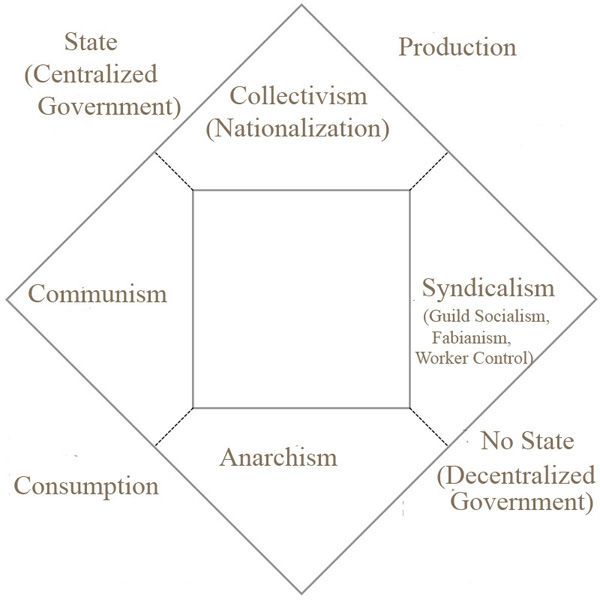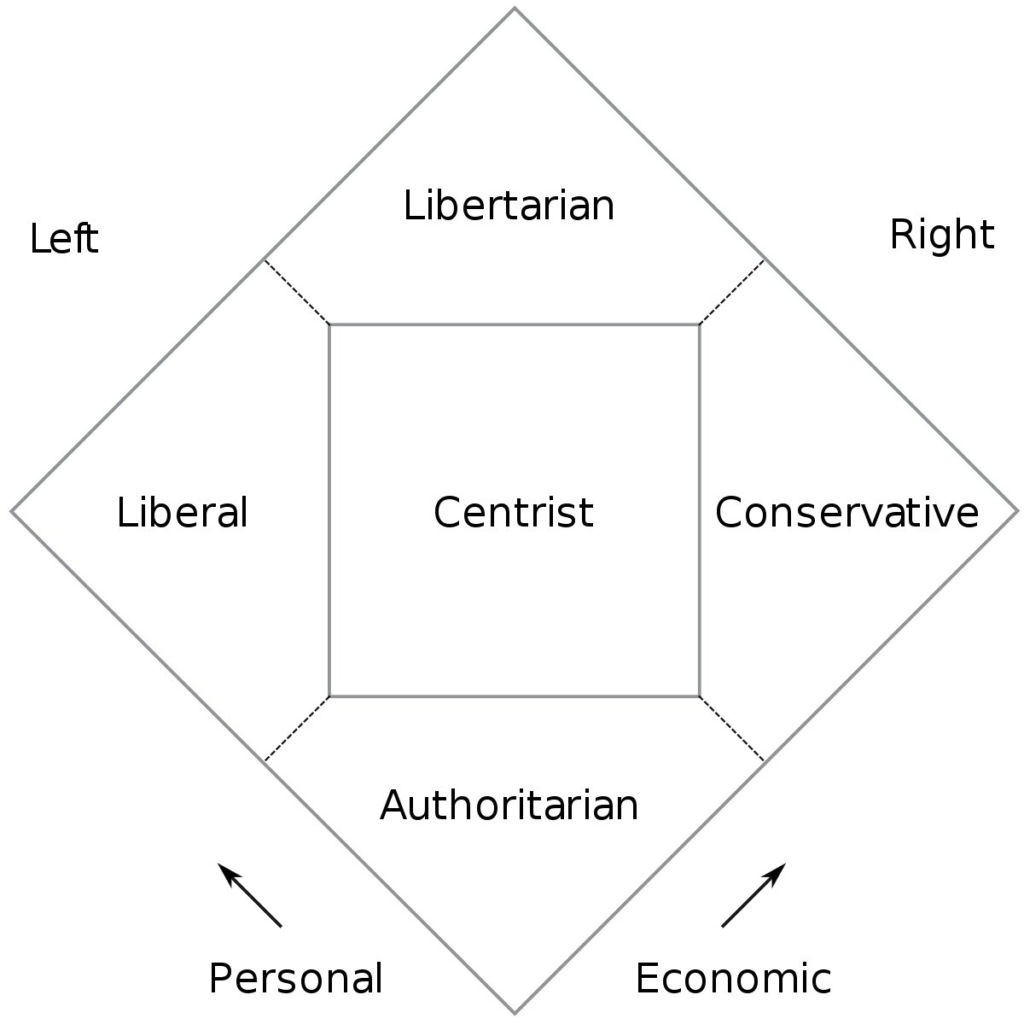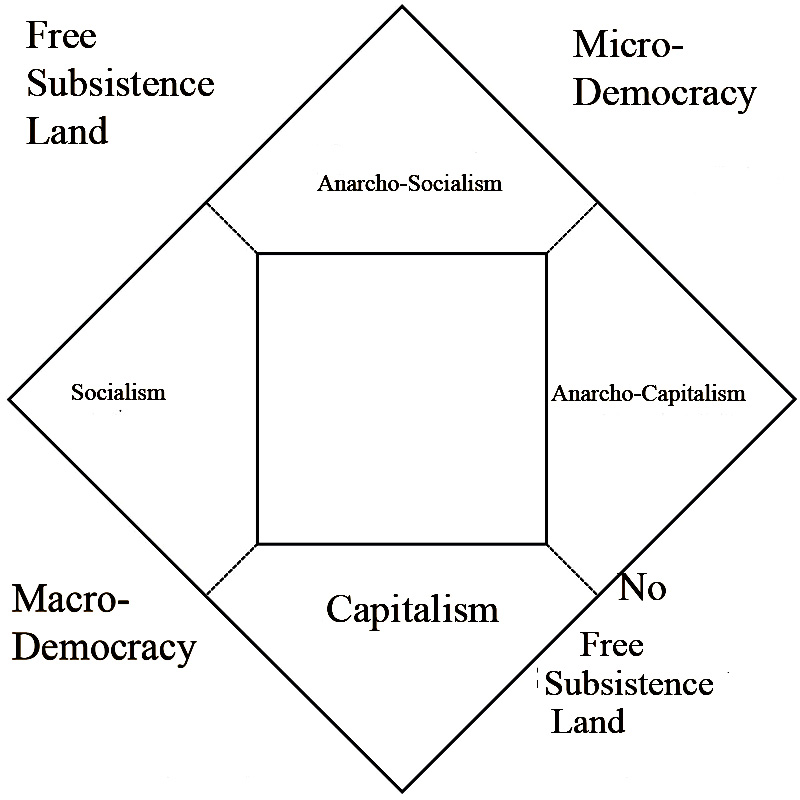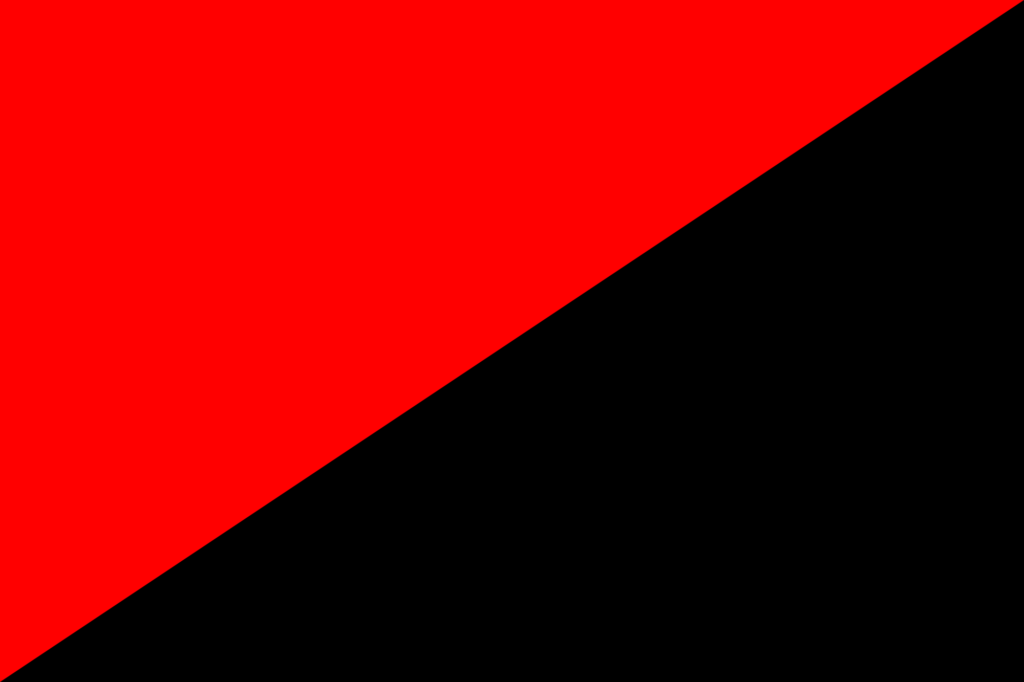Capitalism = def. a political system which by barring people from a free access to subsistence land creates a market economy and a monetary way of life
First, because the so called “intellectuals” do not offer such a definition.
Second, because most city people’s concern (including students’ concern) is to succeed in this (capitalist) system by either getting a good job, or by creating a good business.
Third, because if city people had access to land, they would not know what to do with it. People have become alienated from the use of land except in some aesthetic or romantic way of walking through it or viewing it. People do not know how to grow food or how to care for animals.
However, the correctness of this definition is known instinctively by peasants, who when they have rebelled or protested did so invariably under the slogan “land and liberty.”
Bullshit Laws, Policies, and Institutions
If there is a critique of the United States, it is not of the political institutions, but of an allegedly economic institution of capitalism. My quick response to this is that it is a mistake to look at capitalism as an economic phenomenon; it is a political phenomenon, created by barring people from free access to subsistence land.
You may respond by saying: “If that is true, then Congress could revive some form of the Homestead Act of 1862.”
My answer to this is: it won’t happen, as it did not happen after the Civil War in 1865 when General Sherman proposed to give to former slaves 40 acres and a mule. And the reason it won’t happen is that it is not in the interest of entrepreneurs and corporations which need employees to carry on their profitable projects. And Congress is full of friends of entrepreneurs and corporations.
And it won’t happen through elections because most voters are oblivious of the connection between capitalism and free access to subsistence land, and are more concerned with their immediate security — to the extent that they have it. Besides, voters are more prone to vote for a charismatic politician than for any specific policies promised. As to awareness of political institutions, these exist — if at all — in the recesses of voters’ minds.
And the status quo (i.e., more of the same) will prevail, unless the institutions are changed.
And what country has a better Constitution? Switzerland!

Matthew Cooke on the lies of Donald Trump
Alexander Gray’s classification of socialisms
At the outset of the book, Gray expresses skepticism about a neat definition of “socialism.” He is, of course, correct in his skepticism. Most words suffer from ambiguity and vagueness; much more so abstract words which end in “-ism.”
He is probably right to begin with a survey of individuals who were called socialists, and reserve any attempt at classification and definition to the end of the book — as he does.
Although explicitly he classifies socialists into four categories, he actually uses five. The fifth category is whether the socialist was a Revolutionary Socialist or an Evolutionary (or Reformist, or Revisionary) Socialist. In this broad sense, socialism is simply a dissatisfaction with the existing state of affairs. That is a necessary condition; it is not sufficient. It has to do with the nature of this dissatisfaction.
Well what can you do with the State? Incidentally, asking this question without saying anything about the nature of a particular State, is totally unproductive. When people talk about a “State” they are really talking about a particularly constituted government. It is entirely misleading to equate the State with government. The genus here is “government” and “State” is a species. Government exists when rules exist. And without rules, we have a Hobbesian brute state of nature.
As to the dissatisfaction with the status quo, from a historical perspective society is divided between masters and slaves, lords and serfs, and presently employers and employees. This is the perspective of Karl Marx, and constitutes what Marx called a “class struggle.” Well, certainly such a classifications can be made. But, as Gray asks, do these classes actually struggle? Well, there were various rebellions — but were they between classes? They were local and limited. And currently, when there are strikes, it is for improving wages of a narrow sector of this working class; and not for the improvement of workers in general, and certainly not to get rid of wages as such.
Gray is right to point out that there is no “solidarity” among workers in even one factory, or one country; no less than a solidarity between workers of different countries. And the solidarity which does exist is usually not greater than the strike of one trade union. We cannot ignore the fact that many workers are, indeed, satisfied with their wages, and do not want any radical changes.
And those that are unemployed or underemployed seem to place their hope in an opportunity to vote. This was the case with women and now this is the case with blacks. They think they can elect a candidate who will represent their interests, but the more likely scenario is that they will elect a candidate who will seek his own interests. Even if a true representative is elected, he or she will be in a minority.
But I stray from Gray.
In the concluding chapter 18 of his book, Gray classifies socialists into four types. I have tried to place his classification into a chart below. In order for the category of Anarchism to fit as I have placed it, people must be granted a free access to subsistence land. Although Gray discusses the Agrarians in chapter 11, who advocated a free access to subsistence land, he seems to forget them when discussing anarchism in general. Well, I put them on the chart where they seem to belong.
Alexander Gray’s classification of socialisms

Put-down writing and other side-issues like “influences,” “schools,” and “movements.”
On the one hand, I find the book very valuable for several reasons. Among these is its listing and coverage of a host of socialists and its classification of socialisms, and its bibliography. I also find valuable the exposition of the ideas covered, and for the critical commentary.
However, on the other hand, I find the book annoying for its attempts at psychological and sociological commentary, and more so for Gray’s — what can I call them? — put-downs. As examples of put-downs which annoyed me are: “The fundamental trouble with the anarchist is that, though he may be highly intelligent, he has no sense.” (p. 381) “Anarchism is rather the charming dream of an innocent child.” (p. 495) Without explanations, these are simply ridicule and insult.
This reminds me of the famous description of Noam Chomsky [Paul Robinson,”The Chomsky Problem,” The New York Time, Feb. 25, 1979.] as “arguably the most important intellectual alive today.” This is followed by a criticism of his political writings. It leaves the impression that the writer is using the following put-down: “How is it that such a brilliant linguist is so politically naive?”
There are other things in Gray’s book which annoy me. They could be classified under an attempt at psychology and sociology.
Let me begin with psychology. Instead of just stating and evaluating an author’s ideas, he also attempts at trying to understand what caused him to have these ideas. Thus he looks into a thinker’s biography for what are called “influences.” Instead on focusing on the ideas or claims themselves, Gray seeks some sort of assimilation from someone else’s writings — perhaps a “borrowing” or “stealing” from someone else. What is being ignored or postponed is an exposition of an author’s position — his ideas and claims. Where they came from — other than from his own brain — is a different question — perhaps a question of originality, plagiarism, or subconscious assimilation. But this is a separate matter from understanding the ideas themselves.
In reading a piece of argumentative writing, for most of the time, I have no idea who the author is — and I really don’t care. Why? Because I am able to critically evaluate what I am reading regardless of who the author is. To think that the character of the author has some bearing on the truth or value of his writings is to commit the genetic fallacy. [See my similar criticism: “A bullshit argument against the writings of Karl Marx by Stefan Molyneux”]
The other sort of irrevancy relative to an understanding of an author is the matter of his “influence” or “impact” on others. And here Gray introduces the ideas of “schools” and “movements.” I suppose a “school” exists when two or more thinkers have similar ideas as a result of talking to each other. And as to a “movement,” I don’t know what to say. Perhaps it requires some kind of association — a party, a club; or perhaps a periodical or periodicals with a broad readership. I associate the word “movement” with the flowing of lava from a volcano, land-slides, floods, a tsunami, an approaching storm with moving clouds, a herd of reindeer or buffalo moving over a grazing ground, or a crowd of people moving in some direction. All I know is that talk of human “movements” is a sociological matter, which is in principle a matter of numbers and percentages.
Gray seems to be very interested in “schools” and “movements.” I am not. I am foremost interested in the ideas themselves — not in how many people held them or what “influence” they had.
A further criticism. There seems to be some kind of expectation by snobbish writers that all readers are fluent in at least three languages: English, German, and French. And that a knowledge of Greek and Latin goes without saying. Sometimes it is expected that the reader also knows Russian and Italian. This is bullshit. If you are writing for an English reader, translate everything into English beside the foreign quotations and citations!
Political Orientation
An early one was presented by the psychologist Hans Eysenck “Chapter 7: Politics and Personality,” in Sense and Nonsense in Psychology (1957).
I found a quiz on the internet — allegedly based on Eysenck’s work — which can be taken by anyone to see where they are placed on his scale.
Here is the quiz, and below is my own result after taking the quiz:



1. Are you in favor of giving each person a right to free subsistence land? Yes No
2. Are you in favor of micro-democracy? Yes No
I also associate macro-democracy with a centralized government, there are thus four possible alternatives.
Andrew Chrucky’s Politico-Economic Democratic Chart

Abby Martin on the U.S. war in Afghanistan
Why I am an anarcho-socialist.
So, let me explain to you how I understand these words.
“Capitalism” — as I keep repeating — is a political stance which bars people from free access to subsistence land. It is a system which creates a class of proletarians. These are people who have to work for wages or become homeless.
“Socialism” is a political stance antithetical to capitalism; thus, it allows free access to subsistence land. [Granting everyone a basic income or, as Bertrand Russell called it, a “vagabond’s wage,” would compensate for not allowing free access to subsistence land.]
“State” and “government” are not synonymous. A government is a set of rules regulation social life — however formulated: either by informal agreement, direct or indirect democracy.
A “State” is a centralized government ruling over hundreds, thousands, or millions of people over some territory.
“Anarchism” is a government ruling over a small community of about 150 families through direct democracy or through a council (the Russian word for a council is “soviet.”
By combining the idea of a small community ruling itself with the idea of granting everyone in the community free access to subsistence land, we get the hyphenated idea of “anarcho-socialism.” It can also be called “libertarian socialism” since by “liberty” is meant the self-rule of a small community.
The idea of “anarcho-capitalism” is a contradiction caused by not knowing how to define capitalism. The usual idea given is that capitalism involves free-trade. But free-trade, although a necessary condition for capitalism, is not a sufficient condition — simply because free-trade has existed under slavery and feudalism. The other necessary condition is the barring of people from a free access to subsistence land. Yet, those who call themselves “anarcho-capitalists” also want to grant everyone a homestead. But granting a homestead is equivalent to granting free access to subsistence land. Hence, a puzzling situation for the anarcho-capitalists. Does “ideal” capitalism really allow free access to subsistence land?
Below is the flag for anarcho-socialism. A red flag represents socialism. A black flag represents anarchism.

Land and Survival
Given that the couple is naked, a major concern is temperature — especially at night. And with the additional possibility of rain, hypothermia is a danger. So, a shelter and fire are very important. A machete will help in the construction of a shelter as well as for other uses, like making a spear, as well as preparing food. And a fire is needed for warmth, boiling water, and cooking. Let me point out that without a fire starter, people had to twirl sticks to create an amber — and sometimes this proved to be impossible.
It is said that without water a person can survive for a week, and with water but no food, for a month. Perhaps for this reason the producers of the show made the duration of coping with nature 21 days.
So, in the order of priorities: shelter, fire, water, food.
So, why is this show so fascinating? Because this show makes explicit the human needs for survival. And survival is the bare bones of human life. Everything else is luxuries and psychological quirks.
Other than making such mistakes as drinking unboiled water and eating the wrong food (e.g. green figs), or not knowing how to hunt and fish, the main obstacle for successful cooperation is an individual’s character traits. Some individuals cannot endure the physical discomforts or psychological distress; others cannot cooperate because of laziness or ignorance, or because of being too bossy or too needy — and some are downright mean.
What this show teaches is that humans can survive even in the harshest environments as long as they have access to these environments. However, modern States which favor capitalism, forbid such a free access to subsistence land.
Below is an example of the show:
A very interesting movie is Walkabout (1971) (below). It depicts how a young Australian aborigine boy copes with a harsh primitive environment by contrast with the hopeless efforts of two young “civilized” children.
